




By METRO CREATIVE
Spring is the season most often associated with lawn care, and for good reason. Grass starts growing in spring, and the season is a great time to fertilize many grasses in the hopes lawns can look their best and endure the hotter, dryer weather of summer. Spring might mark the time when many homeowners begin tending to their lawns each year, but it’s important to recognize the significance of fall lawn care as well. Grasses vary, and homeowners are urged to identify which type of grass is in their lawn so they can ensure it gets the care it needs before winter’s first frost. Cool-season grasses like perennial ryegrass and Kentucky bluegrass are common in various regions, and the following strategies can help homeowners with these types of grasses tend to their lawns this fall.
• Stick to your recommended fertilization schedule. Homeowners who have been fertilizing since spring are urged to continue doing so in fall at the recommended interval. It’s easy to forget to fertilize in fall thanks to cooler temperatures that don’t call lawn care to mind and busier schedules after school starts again and summer vacation season ends. But many fertilizer manufacturers advise users of their products to fertilize several times over the course of the year, including in fall. Stick to the intervals recommended on the packaging of the fertilizer you’ve been using, making sure not to forget to fertilize this fall.
• Conduct a soil test. A soil test can determine if the soil is lacking any nutritive elements it needs to come back strong in spring. Certain amendments can restore pH balance if necessary and foster stronger growth when lawns come back in spring.
• Aerate, if necessary. Soil can become compacted over time, and that can cause a range of problems for a lawn. Compacted soil can make it harder for water to reach the roots of grass, which weakens grass and makes it more vulnerable to damage during adverse weather events like drought. Compacted soil also makes it harder for nutrients in fertilizer to get into the soil. Aerating is best left to professionals, particularly in larger lawns, as the job can foster strong root development when done properly.
• Remove thatch where it’s excessive. Thin layers of thatch can benefit lawns by delivering nutrients from glass clippings and leaves to a lawn. However, when thatch is excessive, it can block air, water and even fertilizer from reaching the soil. Thatch often can be removed with a rake, but lawns with especially thick layers of
thatch may need to be scarified. Homeowners can take a DIY approach to scarifying or hire a landscaping professional to dethatch the lawn and remove the thatch from their properties.
• Continue to water the lawn. A cool-season grass will continue to require water into the fall. Though the lawn won’t need to be watered as frequently in fall as in summer, various lawn care professionals note cool-season grasses still need roughly an inch of water each week in fall.
• Remove leaves as they fall. Fallen leaves can affect a lawn in much the same way as excessive amounts of thatch, blocking water and nutrients from reaching the soil. So it’s best to remove fallen leaves, especially when they begin to fall in large quantities. Fall is an opportune time to tend to a lawn to increase the chances grass grows back strong in spring.


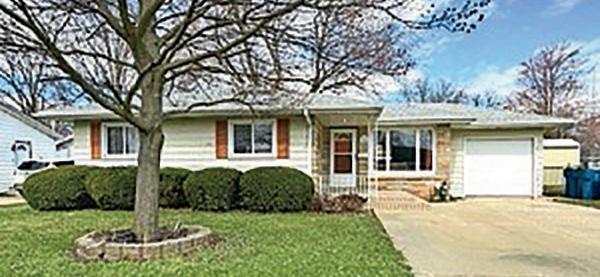
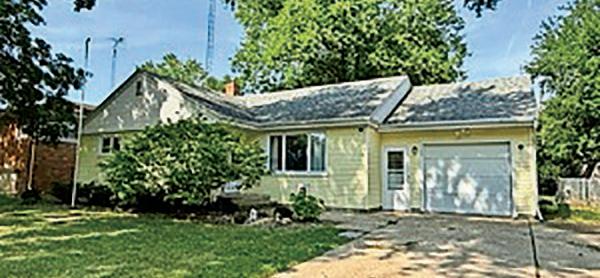


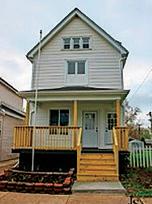





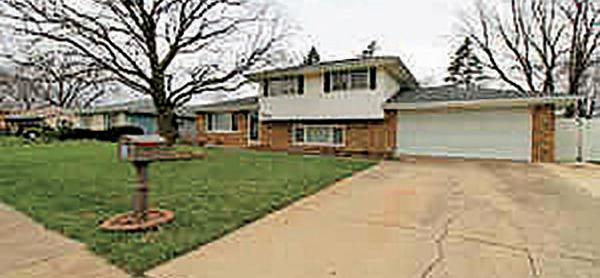














































By METRO CREATIVE
Windows in a home are easily taken for granted. Even though residents look through their windows every day, it’s only when issues arise that people tend to give the windows much thought.
Even if windows may not be foremost on the minds of homeowners, they are a notable component of every home. New windows also can be an expensive addition to a home, so it benefits all homeowners to gain an understanding of window replacement projects before they start shopping around for new windows.
• Windows are more complex than new homeowners may realize. Homeowners will need to choose between three commonly available window materials when picking new windows for their homes. Vinyl windows typically are the most affordable option,
and opinions vary considerably regarding these products. Some tout their resistance to moisture, but others feel they lack the aesthetic appeal of costlier alternatives like fiberglass.
Vinyl windows also can’t be painted, which some homeowners may find problematic. Fiberglass windows can be painted and are known for their strength and durability. Aluminum windows are strong and durable as well, but they may not provide as much thermal protection as some other options. Each window type has its own unique pros and cons, and homeowners are urged to do their homework to determine the best fit for them.
• Consider variables unique to your home. Climate is an important consideration when choosing windows, and that of course is unique to each homeowner. How hot or cold the local climate can be will affect how well win-
dows insulate a home, so a window that’s best for one particular region may not be ideal for another. Homeowners are urged to investigate which window materials are best suited to their local climates. All windows protect against the elements, but some might provide more adequate insulation, which can help keep utility bills low and everyone inside a home more comfortable.
• Homeowners may need to decide between replacement windows or new construction windows. The window experts at Pella note that new construction windows are the primary option for newly constructed homes or room additions. Replacement windows are typically installed when homeowners need new windows but do not want or need to remove existing exterior cladding or trim. Replacement windows tend to be considerably less expensive than new construction windows, but
the latter option merits consideration before making a final decision.
• It can be budget-friendly to replace more than one window at a time.
Some, though not all, window installation companies charge a non-negotiable project fee, so it can be more financially savvy to replace more than one window at a time. Replacing windows piecemeal may require homeowners to pay the project fee for each installation, whereas homeowners who replace multiple windows at the same time will only incur that fee once. If homeowners know many windows in their home are in need of replacement, it can be financially advantageous to replace all that need it at once rather than breaking the project up and paying multiple project fees.
Window replacement projects require careful consideration so homeowners identify the best products for their home.

perfect for related living!
• 3 Bedrooms on the main floor, 3 possible Bedrooms in the full finished basement, plus Kitchen.
• HVAC replaced in 2020 as well as all appliances.
• Cathedral ceiling Living room/Kitchen, bright and airy. Hardwood floors in the Living room along with a gas fireplace.
• Kitchen w/center island, 4 barstools and separate eating area.
• 3 bedrooms on the main level including 22x13 primary bedroom w/WIC, primary also has private full bath with double vanities, whirlpool tub and separate shower.
1st floor laundry. Full, finished basement with large Family room, 3 additional bedrooms, Kitchen and full bathroom. Whole house generator! Covered back porch, privacy fenced yard. 2-car attached garage. Access to I-57, Rte. 45 and Rte. 50.
• Contingent upon Seller finding suitable housing. MLS# 12443348
1581 Carver Cir , Bourbonnais, IL | $344,500


815-937-4370

Beautiful Home on Corner Lot. Move-in Ready!!!
• 4 bedroom, 2 bath
• Beautiful updated kitchen has a breakfast bar and table space.
• Main suite features a private 16x8 deck, perfect for relaxing in your own outdoor retreat.
• Large yard. Perfect for children to play in, entertaining or just relaxing and enjoying the outside.
• 2-car garage was remodeled and insulated. New electrical, man door, and windows. It also has heat and AC.
• 8x10 shed for extra storage, he/she shed or anything you would like.
• Close to Interstate 57
• MLS# 12459695
195 E 2nd Ave. Clifton, IL | $259,999

815-939-1255


This spacious four-bedroom home welcomes you!
• Open main-level floor plan featuring brand new luxury vinyl plank throughout.
• The inviting kitchen boasts ample cabinetry and an island for both meal prep and casual dining, sliding glass doors lead to a generous backyard.
• Upstairs, a versatile loft awaits, along with a convenient second-floor laundry.
• The primary suite offers comfort and distinction with dual walk-in closets for both partners and a private en suite bathroom.
• Three additional bedrooms provide space for family or guests.
• 2.5-car garage and a full, unfinished basement ready for your personal touch.
• MLS# 12455488 2329 Monarch St , Bourbonnais, IL | $404,900

815-937-4370


Nestled along the scenic Kankakee River!
• Beautifully updated 3-bedroom, 2-bath ranch home offers stunning river views, private access for boating, campfires and a peaceful wooded backdrop for added privacy.
• The home features a desirable split-bedroom floor plan and a spacious living room with heated floors.
• The kitchen has been recently updated with granite countertops and allnew stainless steel appliances (2024).
• Since 2018, the home has seen numerous upgrades including a tankless water heater, furnace, A/C, and a boiler for the in-floor heat. A new roof wasinstalled on the garage and home in 2021, and additional improvements in 2024 include a new septic drain field, water softener, and reverse osmosis system.
• Oversized 2-car garage along with a patio area -
• Direct river access, incredible views, and a privatewooded setting.
• Call today for your private showing! MLS# 12460205 4248 S Youth Camp Rd , St. Anne, IL | $285,000

815-929-9381


By METRO CREATIVE
Professionals might be returning to work in offices after years of pandemic-related remote work, but that doesn’t mean homebuyers aren’t still prioritizing home office space when shopping for a new place to call their own.
According to a recent survey of homebuyers conducted by the National Association of Home Builders, 66% would prefer to buy a home with exactly one home office space and 13% want at least two offices. Just one in five buyers indicated they do not want any home office space.
The majority of buyers who want home office space prefer a medium-sized space, which the NAHB defined as between 100 and 150 square feet. Just 22% of buyers prefer a home office space larger than 150 square feet, while only 19% want a small space (less

than 100 square feet).
The NAHB survey indicates the enduring popularity of home office spaces, recognition of which can be particularly useful for current homeowners preparing to put their homes on the market as well as those looking to add office space.

that you must pay out of pocket.
The real estate market constantly shifts, and knowing whether conditions favor buyers or sellers can help you make smarter, more confident decisions. Here’s how to recognize which type of market you’re in and what each means for you:
What are my options for purchasing flood insurance? Depending on where you live, you have two options:
What is a buyer’s market? A buyer’s market is when there are more homes for sale than there are people looking to purchase a home. With a greater selection of homes on the market and less competition, buyers typically have more time to shop, negotiate better terms, and may even see price reductions or other purchase incentives. What is a seller’s market? In a seller’s market, there are fewer homes available than there are buyers looking to purchase a home, creating a competitive environment where bidding wars and quick sales can be common. While sellers can often secure higher prices and more favorable contract terms, preparing the home properly and setting a strategic asking price at the outset are still key to attracting strong offers and ensuring a smooth closing.
Flooding is the most common and costly natural disaster in the United States. Even a few inches of water can cause devastating damage. A licensed insurance agent can advise you on purchasing the right flood insurance to protect your assets. Here’s what you need to know: Does my homeowners insurance cover flood damage? Most homeowners insurance policies do not cover flood damage. While federal disaster assistance may be available to you when a flood occurs, it may be limited and is not guaranteed. The best way to ensure your assets are protected is to purchase flood insurance.

Realtor of the Year
LYNN RANDAZZO
What is flood insurance? Flood insurance covers a property for damage caused by flooding, including from incidents such as heavy or prolonged rain, melting snow, coastal storm surges, blocked storm drainage systems, or levee dam failure.
BHHS Speckman Realty
led by a licensed or certified residential appraiser—an independent third party engaged by the lender to provide a professional judgment on the home’s value. Appraisers do not represent the buyer or seller; their sole duty is to come up with a fair and accurate valuation of the property. While all appraisers follow a set of standards, appraisers who are REALTORS® have the added commitment to uphold the REALTOR® Code of Ethics.
How can you tell which market you’re in? The market type you are in is usually reflected through the pace of sales, how many homes are available, and how close the sale price of a home was to its listing price. In hot markets, homes may sell within days, often well above their asking price. In slower markets, listings stay active longer and require more negotiation. An agent who is a REALTOR® can advise you on these trends in your specific market and help you interpret how they affect your goals.
Is flood insurance required?

LEANNE PROVOST President BHHS Speckman Realty
a home or business in a “high-risk” flood area—any area with a 1% or higher chance of experiencing a flood each year, as defined by the Federal Emergency Management Agency (“FEMA”)—and have a federally backed mortgage, your lender will require you to have flood insurance. However, even where your lender does not require flood insurance, it does not mean your home is not at risk. According to FEMA, wherever it rains, it can flood. Consult an insurance agent for guidance on your specific circumstances.

The National Flood Insurance Program : The NFIP, managed by FEMA, offers flood insurance to property owners, renters, and businesses in participating communities. In return for access to flood insurance, participating communities agree to adopt and implement local floodplain management regulations that help protect lives and properties from flooding. For residential dwellings, NFIP policies offer coverage up to $250,000 for building repairs and up to $100,000 for personal property; non-residential properties are covered up to $500,000 for building repairs and $500,000 for damaged contents. Check your community’s status on FEMA’s website to determine if you are eligible. You can also get an NFIP rate quote

What is a buyer’s market? A buyer’s market people to purchase a home greater
reductions other purchase incentives.
Affiliate of the Year
What is a seller’s market?
MELISSA MARCOTTE Carlile Group
What should buyers do in a seller’s market? Buyers facing heavy competition should come prepared with a mortgage pre-approval letter, move quickly when a good listing appears, and make strong offers. Waiving contingencies or offering flexible closing terms can also help strengthen your offer. Especially in fast-moving markets, setting a firm budget and walkaway point beforehand helps to ensure you don’t overextend yourself when the process gets competitive. When selecting a buyer’s agent to help you, be sure to ask these ten questions to ensure you are working with the agent who is the best fit for your needs.
Understanding homeowners insurance is essential for anyone looking to purchase a home. Start looking at policies early and ask an agent who is a REALTOR® to connect you with a licensed insurance agent for assistance. A detailed industry overview of available coverage is here, and below are some of the basics: What is homeowners insurance? Homeowners insurance covers you for unexpected losses at your home or property. It can include provisions to repair or rebuild the property or other structures not attached to your house (e.g., fences or detached garages), replace assets within the home, cover legal and/or medical fees for accidents that happen to you or someone else on the property, or even pay for living expenses if a covered incident forces you to live elsewhere temporarily. What are perils, and which are covered?

Rising Star
EMILI VILLAGOMEZ Village Realty
similar version of something you own. Insurers often cover this for your dwelling or property up to the limit of the insurance policy. If your home is insured for at least 80% of its replacement cost, and it gets damaged or destroyed, the insurer will reimburse you to have it repaired or replaced with similar materials of like kind and quality. Replacement cost is not the same as market value. For example, if you bought a $500,000 home five years ago, it is destroyed by a fire, and the actual cost today to restore it using similar materials is $375,000, you may be paid $300,000 after the deductible.
help you make smarter, more confident decisions. Here’s how to recognize in and what means for you
Do I have to get an appraisal? If you are taking out a mortgage on your new home, your lender will usually require you to get an appraisal to help establish the “loan-tovalue (“LTV”) ratio,” or the percentage of the home’s price that you’ll borrow. Higher LTV ratios are riskier investments for the lender, so generally they look for LTV ratios of 80% or less. If you are paying in cash, an appraisal isn’t required, but it can still be useful to get a third-party opinion to make sure you aren’t overpaying. In certain instances, the requirement for an appraisal may even be waived by either the lender or the buyer to make their offer more attractive to a seller.
What does an appraiser look at? Different appraisers may take different approaches. By referencing databases such as Multiple Listing Services—online platforms that compile home listings in a given market—appraisers can use recently sold properties that have similar characteristics, called “comparables,” to help come up with a reasonable value for your home. They will also look at the home’s condition, recent renovations or improvements, amenities, location, size, and other characteristics. Whatever method an appraiser uses, it must be independent, un-biased, and backed up by evidence.
looking to purchase a home can be common. While s preparing the home properly and setting a strategic asking price strong offers and ensuring a smooth closing.
What should sellers do in a buyer’s market? When there are more homes than there are interested buyers, sellers should look to prioritize ways of making their property stand out. This could include competitive pricing, investing in curb appeal or staging and being flexible on timelines or terms. While it may take longer to sell, a wellpresented and appropriately priced home can still draw strong interest even when the overall pace of sales slows. Consider asking potential seller’s agents these ten questions to better understand how they can help you maximize your home’s appeal. Can market conditions change quickly? Yes—markets can quickly shift due to interest rate changes, job growth, seasonal trends, or shifts in consumer confidence. What was a seller’s market last year could easily become more balanced, or even buyer-friendly, within months. Staying informed about local trends helps you better anticipate these changes and adjust your strategy accordingly.
How much does flood insurance cost?
• Actual cash value is the current value of an item that loses value over time due to use and/or age (depreciation). The insurer pays out the cost to make repairs, minus any depreciation. This reimbursement type is most often used for replacing personal property but could also be applied to your dwelling if your property is significantly underinsured (less than 80% of replacement cost).
Do appraisals take place in person? An appraisal may include an in-person visit, but it is not always required. In some instances, hybrid and desktop appraisals are used where appraisers collect data remotely and speak with reliable third-party sources familiar with the property and surrounding area, such as current or former agents of the comparables being considered.


• : Private flood insurance is provided by private companies rather than the federal government. Private insurers may charge comparable rates but offer more coverage than the NFIP, such as higher protection limits, policy enhancements, and payments for temporary living expenses if you are displaced. You can also supplement an NFIP policy with private insurance to extend your

MONICA PIZANO President Elect RE/MAX Prestige Homes

CAMARGO Director RE/MAX Prestige Homes
JESSICA SEYDEN Director BHHS Speckman Realty
The average cost of flood insurance is about $1,000 per year, according to FEMA. However, the cost can vary widely depending on many property-specific factors and the flood risk for each individual property. Your premium is also influenced by your deductible, or the portion of a claim
How can you tell which market you’re in? The market type you are in pace of sales, how many homes are available, and how close the sale price o price. In hot markets, homes may sell within days, often above their listings stay active longer and require more negotiation. A n agent who is a on these trends in your specific market
What should buyers do in a seller’s market? with a mortgage pre-approval letter
MOLLIE GRIZZLE Secretary/Treasurer LaMore Realty
Should I wait for a better market? Trying to time the market perfectly can be difficult. In most cases, personal factors—such as lifestyle changes, financial readiness, or long-term plans—are more important than short-term market fluctuations. If you’re prepared, working with a trusted professional can help you navigate conditions as they are and make the best possible decision for your future. Practices may vary based on state and local law. Consult your real estate professional and/or an attorney for details about state law where you are purchasing a home. Please visit facts.realtor for more information and resources.
How long does it take for my policy to take effect? Typically, there is a 30-day waiting period from the date of purchase until an NFIP policy goes into effect. There are exceptions if you purchase flood insurance in connection with a mortgage loan. Private flood insurance can vary.
“Peril” is an insurance term for a specific risk or reason for a loss. Your insurance will cover a loss only if it is caused by a peril that your policy covers. Policies can vary in which perils are covered, but the most common policy type, HO-3 or the “Special Form,” covers the home structure and personal belongings for disasters including fire, hail, lightning, freezing, theft, and vandalism. Most policies exclude floods and earthquakes. Is homeowners insurance required? If you are taking out a mortgage on your new home, your lender will require you to have a homeowners insurance policy for the duration of your mortgage. If your mortgage is paid off, or if you’ve paid for the home in cash, no laws require you to maintain insurance. However, having insurance is generally a good idea to ensure your assets are protected.

In this case, if you bought a new table five years ago for $1,500, but due to normal wear and tear, it’s only worth $750 at the time of the covered incident, then your insurer will only pay out up to $750. You can, however, purchase replacement cost coverage for your personal property for an additional charge.
Is my agent allowed to communicate with the appraiser? Yes. Your agents and others involved in the transaction are allowed to communicate with the appraiser and provide property information. It is not only unethical, but it is also unlawful for agents to intimidate, persuade, or bribe an appraiser to influence the valuation, and an appraiser may not disclose confidential information at any time.
What happens if the appraised value is different from the purchase price? A mismatch between a home’s appraised value and the purchase price can impact how much your lender allows you to borrow for your mortgage. You can negotiate to include an appraisal contingency—a condition that the value and purchase price must align in order for the transaction to continue—in your purchase agreement, but an appraisal contingency is not required.
LYNN RANDAZZO Immed-Past President BHHS Speckman Realty
ANDY CZAKO Director McColly Bennett Real Estate
Waiving contingencies or offering flexible closing terms can also in fast-moving markets, setting a firm budget and don’t overextend yourself when the process gets competitive. you, be sure to ask these ten questions your needs.

If you are financing your home purchase, you will likely be required to get a home appraisal as one of the steps between signing and close. Here’s what you should know:
How much does homeowners insurance cost, and how do I pay it? The cost of homeowners insurance depends on several factors, such as the house’s age, square footage, condition of the property, and location. You may have the option to pay your premium on a monthly, quarterly, or annual basis. Some lenders collect the insurance premium as part of your monthly mortgage payment, place it in an escrow account, and pay the insurer on your behalf.
SANDY BOYER Director McColly Rosenboom
What is an appraisal? An appraisal is an opinion on a home’s market value that helps a lender ensure the purchase price is in line with the property value. The process is
Will I receive a copy of the appraisal? Yes. The Federal Equal Credit Opportunity Act requires lenders to automatically send you a free copy of home appraisals and all other written valuations on the property after they are completed. However, if you are granted an appraisal waiver by your lender, your lender is not required to send you a copy of the valuation report.

In addition, some insurers may offer add-on options to extend your dwelling coverage. For example, an extended replacement cost policy option gives extra coverage above the policy limit up to a set percentage. For example, if a home insured for $500,000 takes $750,000 to rebuild, an extended coverage policy at 20% would mean the insurer pays 120% ($600,000), or $100,000 above the limit.

How much will my insurer pay me?
In the event of a loss, there are two common types of reimbursement:
DUSTIN KOOY Director Village Realty
GINA LAMORE DR Chairman LaMore Realty


What should sellers do in a buyer’s market? buyers, sellers should look to ways of competitive pricing, investing in curb appeal or staging it may take longer to sell, a welleven when the overall pace of sales slows. to better understand how they can help you maximize your home’s appeal.
• Replacement cost value is the amount needed to buy a new,
Are homeowners insurance premiums tax deductible? If the property in question is your main home, then your home insurance is generally not deductible. However, people who run a business from their home or those intending to rent out their property may be able to claim a deduction. Additionally, if you suffered a loss to your property caused by a presidentially declared disaster, you may be able to claim a casualty loss deduction. Discuss your unique needs with a tax professional.
Can I request that an appraiser correct or update the appraisal? If you believe the appraiser did not consider important information about the property or available comparables, you can request a reconsideration of value (“ROV”) to ask that the appraiser reevaluate their analysis. Your lender will provide instructions on how to initiate an ROV, and your agent can help you gather the appropriate information to complete the request. If you believe an appraiser has reached an inaccurate or biased decision, you can also file a report with your state and federal regulatory agencies using the Appraisal Subcommittee’s Appraisal Complaint National Hotline , or a local nonprofit fair housing organization (find by ZIP code here). Find support and other resources here.
Practices may vary based on state and local law. Consult your real estate professional and/or an attorney for details about state law where you are purchasing a home. Please visit facts.realtor for more information and resources.
Practices may vary based on state and local law. Consult your real estate professional and/or an attorney for details about state law where you are purchasing a home. Please visit facts.realtor for more information and resources.
REALTORS® are members of the National Association of REALTORS®
Can market conditions change quickly? Yes markets can quickly easily become more balanced, or even buyer-friendly,
Kankakee Iroquois Ford Association
Should I wait for a better market? personal factors such as lifestyle changes, financial readiness, or long -


















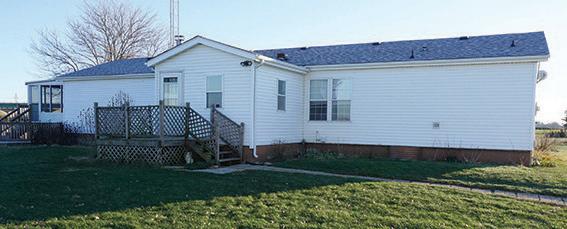












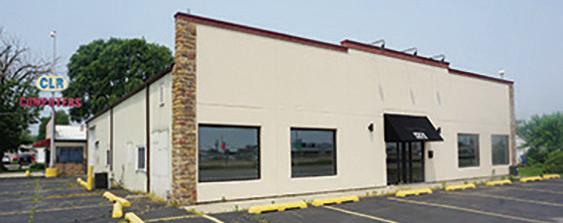














By METRO CREATIVE
When the summer entertaining season draws to a close, homeowners need to ensure their outdoor living areas can handle weather that’s right around the corner.
Although outdoor furniture and other items tend to be durable, the impact snow, wind and ice can have on them may lead to damage over time. That is why many homeowners take steps to winterize their outdoor spaces and protect their belongings. Here’s a look at how to prepare for the winter to come.
• Furniture: Cover or store furniture to protect it from the elements. Covering it with weather-proof covers can be adequate if storing items indoors is not possible.
• Deep clean: Items that will be covered or stored should be thoroughly cleaned prior to being removed from spaces for the season. Lingering dirt and moisture can cause damage.
• Insulate and drain: Don’t risk damage to pipes, which can freeze and crack in the cold. Shut off the water supply to exterior faucets and drain water lines to prevent pipes from freezing and bursting. Use foam pipe insulation to prevent freezing and cover any exposed pipes.
• Apply mulch: After cleaning up

garden debris, think about applying mulch to garden beds and cover tender plants to protect them from the weather.
• Check gutters: Be sure that gutters and downspouts are clear of leaves and any additional debris. If gutters and downspouts are not cleaned, ice dams may form on the roof and cause water damage.
• Inspect and repair: Inspect walkways and driveways for any damage and make repairs now so water will not seep in and cause further issues with freeze-thaw cycles. Consider applying a sealant to protect surfaces from snow and ice.
• Pools and spas: It’s essential to follow the industry or manufacturer recommendations for closing down swimming pools and spas for the season. While covers may not be essential in all climates, covering can help prevent leaves and other debris from getting in the water. Water should be expelled from pipes and tubing to prevent freezing and bursting. If space allows, consider moving the pool pump indoors to prolong its longevity. Turn off the electricity to the outlet where the filter is plugged in.
There may be additional, region-specific steps to winterize a property, but these pointers are a good starting point to protect outdoor spaces.







